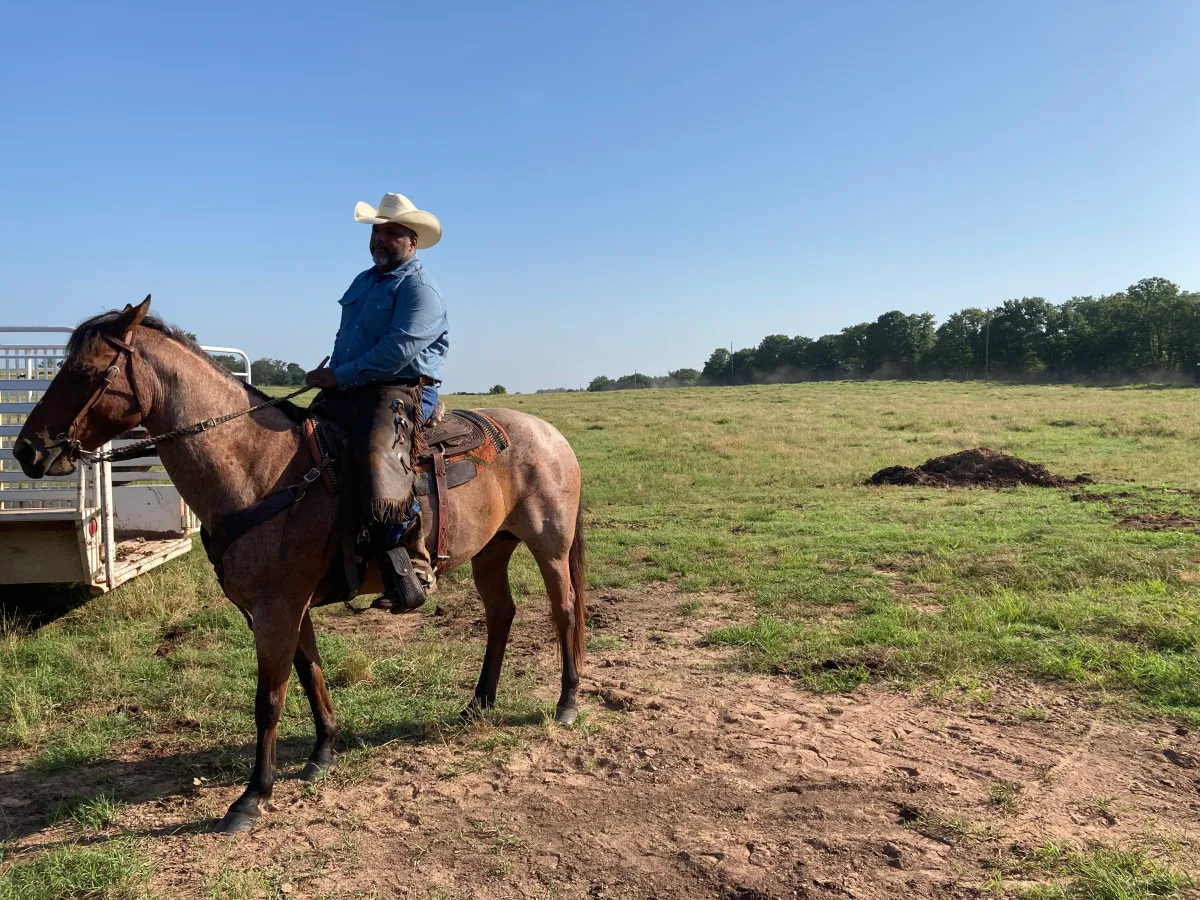The Uniform Partition of Heirs Property Act was supposed to be a strong dose of medicine for the ills of heirs’ property — jointly owned land with multiple heirs not documented in wills or deedbooks, which have hindered multi-generational land ownership and family wealth for Black families since Reconstruction.
Twenty-two states and Washington, D.C., have enacted the law, first passed in 2011. The act has helped to prevent land loss among low- and middle-income families by applying standard practices when courts split property, known as partition actions.
But other ills of heirs’ property persist. And as a result, it’s still unclear how effective the law will be, attorneys, educators, mediators and academics told the Center for Public Integrity.
“People don’t have money to hire a lawyer, and if you can’t defend the partition action, the UPHPA is not going to help you,” said Fran Miller, senior staff attorney and adjunct faculty member at the Center for Agriculture and Food Systems at Vermont Law and Graduate School.
On top of that, heirs’ property practitioners say there’s too little awareness of the law among attorneys and judges.
According to the drafters of the act, the law is intended to protect the generational wealth of property owners who lack the necessary records, resources and wealth to simply claim ownership over the property.
The usual method for partitioning property is guided by the answer to one question: Can the property be physically divided, equitably and proportional to everyone’s share? If not, sell it. The act inserts other considerations, such as the land’s sentimental value.
But with heirs’ property, the number of people who can claim ownership of the land tends to multiply with each new generation. That makes heirs’ property disputes harder than other types of dispute resolution, not to mention the complexity of those families’ relationships. Over time, people move and change. Some heirs may be living on the land, while others may be physically and emotionally disconnected from the property. And some may be totally unaware that they have rights to property.
“All the protections just slow down the process,” said Kara Woods, a research analyst at a center at the historically Black Alcorn State University that focuses on agricultural policy recommendations for farmers of color. “It helps because more people can be involved. … Donations can be raised and families can actually decide what they want to do with the land.”
Woods works at the Socially Disadvantaged Farmers and Ranchers Policy Research Center in Mississippi, the state with the highest proportion of Black-owned farmland.
Land ownership and the development value of land, critical components of individual and intergenerational wealth, have become a big part of efforts to close the racial wealth gap. Rightful title to land, a commodity in dwindling supply, is usually resolved with key legal documents like trusts, wills and birth, death and marriage certificates.
But among people of color, those documents are often nonexistent. About 75% of Black parents do not have a will, compared with about a third of white parents.
In the years since 1910, Black families have lost 80% of the agricultural land owned by previous generations in part because of the problems with the heirs’ property system. Up to one-half of Black-owned land is estimated to be heirs’ property. According to one study, the value of Black land loss is about $326 billion.
Heirs’ property, though, is common in low-income and marginalized communities of any race, including Indigenous peoples in tribal nations, whites in Appalachia and Latinos in the Southwest. It’s found in Brooklyn, N.Y.; Washington, D.C.; and other cities experiencing significant gentrification.
Lack of access to attorneys, distrust of government, racial violence, systemic racism — “all of it contributed mightily to the development of heirs’ property, the prevalence of heirs’ property and the difficulties of solving it,” Miller said.
Major reforms
The Uniform Act makes three major reforms to partition law, the principle by which property is divided among joint owners based on the particular interests each holds in the property.
First, the law standardizes a uniform criteria for a so-called buyout round, permitting co-owners to purchase one another’s shares. This step encourages ownership to be consolidated. Although there are mechanisms in some older state laws that allow co-owners to buy each other’s shares, those mechanisms vary. If the buyout round isn’t effective, the court will decide between dividing the property among the heirs or selling it and dividing the proceeds equitably.
Related Podcast
The Heist: Season 3
Second, during this stage the court may consider factors including “ancestral” attachments, or whether a co-owner would be “harmed” without it. There’s a strong preference for dividing the land where possible, called a partition in kind. But dividing the property may be impossible.
Third, the act specifies that the property should be sold on the open market rather than at a courthouse auction so it may garner a higher sale price.
“Under the old statute, very rarely did a judge say, ‘I’m going to determine that this partition is fair and equitable,’” said Jacy Fisher, an attorney in Alabama.
Despite the law’s reforms, some attorneys say there’s still too much latitude for judges to declare that the land can’t be partitioned in kind and must be sold.
“The judge doesn’t want to decide who’s going to get the piece by the road versus the piece by the gully,” Fisher said.
The best investment
Nearly all 15 attorneys in Georgia and Alabama who were interviewed in a 2021 study prepared for the Alcorn policy center said that heirs’ property owners typically can’t afford legal advice or genealogical research, “much less the funds to retain an attorney.”
Legal fees to clear title can cost upwards of $10,000, even if it’s just five acres, said Woods, of Alcorn’s policy center. The Biden administration is investing $67 million from American Rescue Plan Act of 2021 funds to provide low-interest loans for heirs’ property owners to clear title, obtain legal services, engage in mediation and resolve ownership issues. But some critics argue it may not be worth going into debt for property whose value could be more emotional than monetary.
Despite the attention given to partition actions, 18 attorneys interviewed in the Alcorn study indicated that they’re rare in Alabama, Georgia and Kentucky. The researchers found relatively few partition cases due in part to a lack of accessible data.
But California, Virginia, Maryland and Washington, D.C., have expanded the act so that it doesn’t just apply to heirs’ property, but to all partition actions.
North Carolina is among the few southern states where the act has been introduced but has not passed. Paul Stam, an attorney and former North Carolina state representative, hopes it doesn’t.
Stam said the bill would “drastically” increase the length of time and cost associated with the partition process. But it also seeks advantage for a group at the expense of other individuals by considering sentimental attachments to the property or whether selling it might mean an individual is displaced.
“It takes away rights from especially the minority shareholder who may not have been as assertive as their big brother or uncles or aunts or whoever remained in possession,” Stam said.
He argued that land loss among disadvantaged groups is not a particular problem in North Carolina and is also not the worst outcome.
Related story
Fighting the wealth vortex
“Land is not always the best investment,” Stam said. “A matter of fact, where many, many partitions take place are in land where the property is not worth that much, and by selling it, they can put their money into more productive wealth-creating uses.”
Heirs’ property is present in every county in North Carolina, concentrated in underserved communities, according to a 2023 study by Wake Forest Law that found 4% of the state’s property is in heirs’ property. Total value: about $2 billion.
Partition actions are more common in waterfront locations that have higher developmental value, such as South Carolina’s Hilton Head, the South Carolina Lowcountry and the Gulf Coast of Alabama, although it’s a growing problem in timber-rich areas of Alabama and Georgia.
South Carolina is seeing population growth in metropolitan regions outside Charleston, Columbia and Greenville, said Josh Walden, chief of operations at the Center for Heirs’ Property Preservation in North Charleston. As large companies like Volvo and Boeing bring jobs and infrastructure, they’re driving up tax assessments and the value of properties that used to be primarily rural.
Joint owners of heirs’ property are then targeted by developers, who offer to buy out distant heirs with little to no relationship to the land, Walden said. When developers buy out such heirs, it may be possible for them to force a sale of the entire property.
Education and diplomacy
Arkansas attorney Furonda Brasfield said there’s a critical need to educate judges and attorneys on the act, especially when people are pro se litigants representing themselves in court, often because they can’t afford to hire legal representation.
“These people are going to court pro se and they don’t know about [the act], and the judge knows and doesn’t want to enforce it, or doesn’t know,” Brasfield said. “People lose their land.”
The act has strict requirements and deadlines, Fisher said. “It’s not a statute that a person could navigate on their own without an attorney.”
Attorneys in Alabama, Georgia and South Carolina, all states where the act has been approved since 2012, also told Public Integrity that they either were aware of or had experienced firsthand judges applying old statutes that the act had replaced or opposing counsel making arguments based on those outdated laws.
Several attorneys told Public Integrity that judges and opposing counsel often don’t understand the cultural significance of the act, seeing it merely as a burden on the litigation process.
So, attorneys are sharing resources and lawyering tactics in the Heirs’ Property Practitioners Network, a group that has grown to about 80 lawyers over the past year.
In the best of circumstances, families with heirs’ property resolve their disputes in mediation before they go to court. Once they reach a judge, yes-or-no legal principles take precedence in a conflict that requires diplomacy and flexibility.
New York modified the act by requiring court-ordered mediation. The modification is based on similar provisions in North Carolina and Indiana, two states that have not adopted the act.
But some attorneys say that mediation can drag on for years. And it becomes more complicated depending on the number of heirs involved and the nature of their relationships.
“It’s not like traditional mediation, where you have two parties at the table,” Fisher said. “Now you have 155. How do you practically even do that?”
Related Story
Fisher says she’s the only attorney in Alabama who does adversarial work on heirs’ property. She doesn’t handle mediations because she doesn’t want to be unable to represent an heir who might later want her to represent them in a partition action.
Some organizations, such as the Center for Heirs’ Property Preservation, get to know the heirs through a “family presentation,” a seminar that kicks off by teaching the family about heirs’ property but moves to addressing family dynamics. “Most people won’t come to a mediation session,” Walden said.
During the presentation, attorneys meet with heirs collectively, typically at a community center or church, but Walden has also accepted last-minute invitations to family reunions an hour away.
“You have to do everything they tell you not to do in law school, meaning getting to know and almost getting emotionally involved with folks because you spend so much time with them,” Walden said.
LyTanya Brown, land retention attorney and mediator for the Federation of Southern Cooperatives, said it’s critical to get to the root of the problem while preserving the family relationship.
“Because a lot of times, it can be as simple as something that happened in childhood, that they’re still holding against another heir,” Brown said. “It has nothing to do with the property.”
Stopping the cycle
Heirs’ property practitioners and academic scholarship propose several solutions, such as creating comprehensive and thorough estate plans that specify how a property ought to be divided among children.
“Stress estate planning to stop the bleeding,” said Ebony Woodruff, director of the Southern University Law Center Agricultural Law Institute for Underserved and Underrepresented Communities. “People can create a will now.”
Wider acceptance of estate planning documents such as heirship affidavits also could have an impact. Heirship affidavits establish the legal heirs to a property and can be a cheaper alternative to clearing title.
Families need more access to public funding for estate planning and clearing titles. They can stop the cycle of heirs’ property by willing or transferring their interest to another person, buying out each other’s shares or creating a limited liability company together.
An article in the April 2021 Columbia Journal of Race and Law suggests modifying the act to mandate that land is partitioned in kind, unless “there is consensus among all located co-tenants that a partition-by-sale is preferred.”
But another problem affecting heirs’ property owners isn’t addressed by the Uniform Act: tax liens. These are legal interests a local government may impose on property to collect on delinquent taxes. During a tax lien sale, an outsider could step in and buy the lien, then eventually foreclose on the owners or gain title to the home.
“We need to be really careful to track and monitor how much heirs’ property is being lost to those tax lien sales,” Fisher said. She added, “I think a lot of that happens under our nose and we don’t even know it.”




